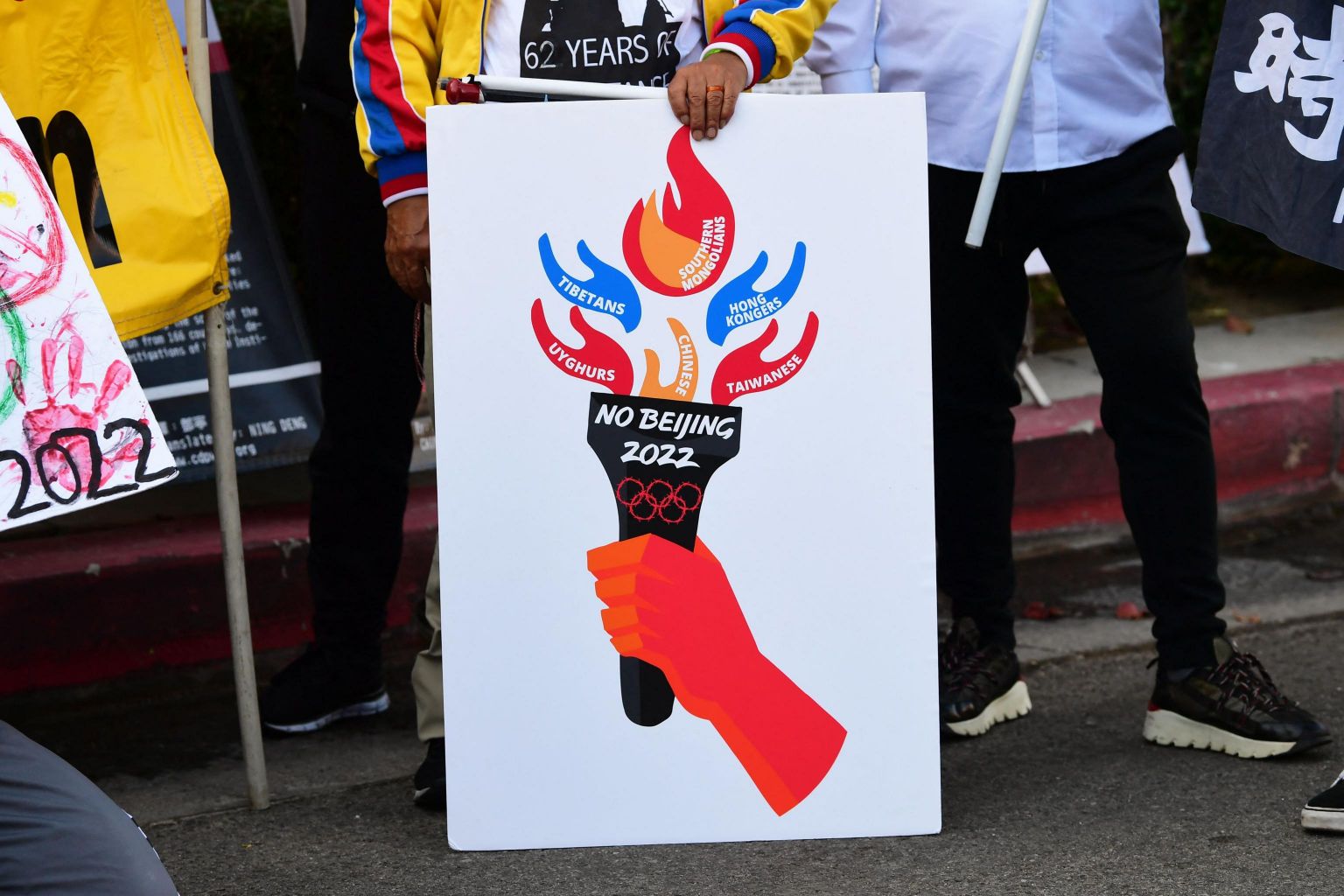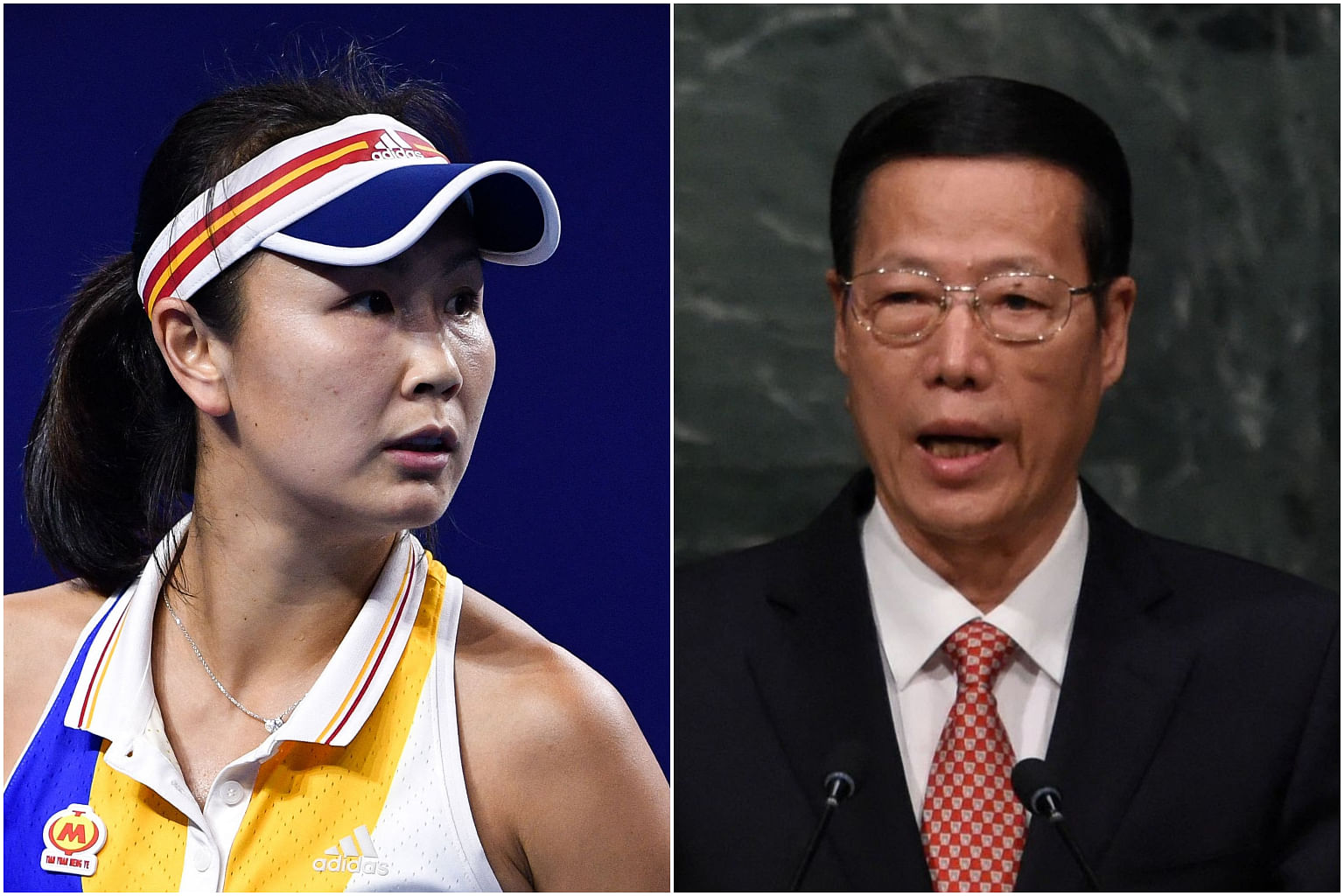US diplomatic boycott: What does it mean for the Winter Olympics?
Sign up now: Get insights on Asia's fast-moving developments

Under the boycott, the Biden administration will not send any US diplomatic or official governmental representatives to the Games.
PHOTO: AFP
BEIJING (AFP) - The United States has announced a diplomatic boycott of the Beijing Winter Olympics to protest China's human rights record, particularly its handling of Muslim minorities that Washington considers a form of genocide.
Here is what the move means.
What is a "diplomatic boycott"?
Under the boycott, the Biden administration will not send any US diplomatic or official governmental representatives to the Games.
Olympic hosts have traditionally basked in the global attention, which often includes visits by foreign leaders or officials.
US President George W. Bush, for example, cheered on Team USA during the 2008 Summer Games in Beijing.
But allegations that China had subjected Muslim minorities in its Xinjiang region to mass detention, forced labour, and other abuses make it politically untenable for a US official to be seen in the stands in Beijing in February.
The boycott should ease domestic US pressure on Biden to send China a message, while not penalising American athletes or completely shattering already brittle China-US relations.
So it is a snub, but with far less sting than the full boycott advocated by some prominent US lawmakers and rights groups, which would bar participation by athletes, coaches and team officials.
How will it affect the Games?
Not at all, it appears.
In announcing the boycott, White House spokesman Jen Psaki stressed that US athletes are free to compete and that "we will be behind them 100 per cent as we cheer them on from home".
Members of Team USA, their coaches, trainers and other staff will still receive consular and diplomatic security assistance, a state department spokesman said separately, and there is no indication that their Chinese hosts will treat them any differently.
In any case, top politicians rarely appear at the Winter Games, and numbers are likely to be further restricted due to tight Covid-19 protocols.
Will other countries follow suit?
No similar plans have been announced, but close US allies Britain, Australia and Canada - all of which have seen relations with Beijing cool dramatically in recent years - are reportedly considering it.
But beyond that, China's growing global economic and political clout is expected to deter most other countries from joining in.
That does not guarantee that China will be free of criticism during the Games, as individual Olympians will remain free to speak up while in Beijing.
The potential for athlete criticism was made clear after Chinese tennis star Peng Shuai made sexual assault accusations against a former top Communist Party politician.
Her subsequent disappearance from public view for three weeks prompted top tennis stars to express concern for her safety, and the Women's Tennis Association to announce a suspension of all competitions in China.
But commercial boycotts by big Olympics sponsors are highly unlikely, according to Games-watchers.

How will China respond?
China has denounced talk of boycotts for months and warned that "the US will pay the price for its wrongdoing".
The specifics remain to be seen, but the Eurasia Group consultancy said retaliation is likely to be confined to diplomatic channels and may include imposing largely symbolic sanctions on some US politicians.
But China has warned that a boycott could have a broader impact on relations.
This could potentially complicate efforts by Biden to make progress with China on issues such as arms-control talks and efforts to cool tensions over the status of Taiwan.
But China may keep retaliation low-key to avoid drawing attention to criticism of rights issues, which many Chinese citizens profess little knowledge of due to the Communist Party's tight domestic information controls.
Have there been boycotts before?
The Olympics, particularly the Summer Games, have seen several boycotts in decades past by individual countries or multi-nation blocs since the first modern Games were held in Athens in 1896.
These have usually consisted of nations boycotting the participation of ideological foes, such as Muslim nations staying home to protest the presence of Israeli athletes, or North Korea sitting out the 1988 Seoul Olympics.
By far, the biggest actions came in 1980 when US President Jimmy Carter boycotted the Moscow Games to protest the Soviet invasion of Afghanistan, and four years later when the Soviet bloc retaliated with a boycott of the Los Angeles Olympics.
The major impact of each boycott came in the medal tables, as each side raked in gold in the other's absence.


